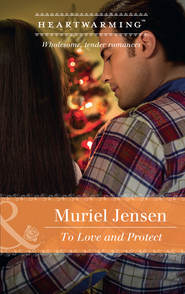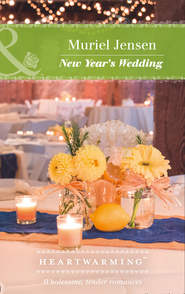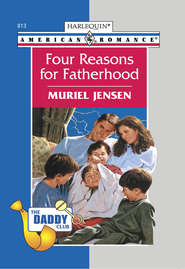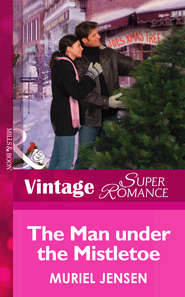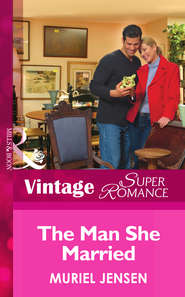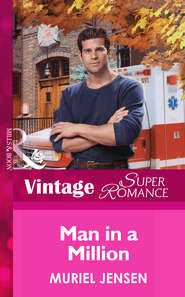По всем вопросам обращайтесь на: info@litportal.ru
(©) 2003-2025.
✖
His Wedding
Автор
Год написания книги
2018
Настройки чтения
Размер шрифта
Высота строк
Поля
He was just about to give the reporter credit for a job not too badly done, when he got to the part about himself:
“Brian Girard, the illegitimate son of Susannah Stewart Abbott, Nathan Abbott’s first wife and mother of the two oldest Abbott sons, and Corbin Girard, the Abbotts’ neighbor and longtime business rival, has been welcomed into the bosom of the family.” It continued in praise of the family’s generosity, considering that Corbin Girard was responsible for setting a fire to their home and vandalizing Brian’s business. It explained in detail that Brian had been legally disowned for defecting to the Abbott camp by giving them information that stopped them from making a business deal they would have regretted. He had no idea how they’d gotten that information, unless one of the family had told them.
Brian threw the paper into the trash and strode, coffee cup in hand, down his dock. The two dozen boats he’d worked so hard to repair and refresh bobbed at the ends of their lines, a testament to his determination to start over at something he enjoyed.
The repainted and refinished shop was stocked with the old standbys people came in for day after day, as well as a few new gourmet products, a line of sophisticated souvenirs, and shirts and hats with his logo on them—a rowboat with a grocery bag in the bow, visible proof of his spirit to survive in the face of his father’s continued hatred.
He could fight all the roadblocks in his path, he thought, looking out at the sun rising to embroider the water with light, but how could he fight the truth? No matter what he did, he would always be the son of a woman who’d thrown away her husband and her two other sons like outdated material, and of a man who’d rejected him since the day he was born and who had no concept of purpose but to make more money than the next man and prevent him from catching up by whatever means it took.
The sorry fact was that Brian couldn’t fight it. He could do his best to be honest and honorable, but that would never inspire a newspaper article. Every time his name came up, it would be as the son of his reprehensible parents.
He didn’t know what to do about it.
“You’re an idiot,” he told himself firmly, “if you allow yourself to be hurt by what you can’t change and by what you had no control over in the first place.”
Right. He got that part. But what about all the other people connected to him—like the Abbotts—who would have to hear or listen to the old scandal dragged up again as the true meat of the story whenever they did something newsworthy?
He’d been giving that a lot of thought and hoping for a solution other than the obvious: move out of their light. He was a smart man; it would come to him.
Meanwhile, the brief lull between his early-rising customers and the late-stirring sack rats would be over soon and he had things to do. As he walked along the dock, checking his little fleet, he noticed a loose knot on the line securing a square-stern canoe. He’d just gotten down to tighten it when a movement to his left made him turn. Janet was standing nearby, in a white shirt knotted at her waist and white shorts. She smelled of something floral that permeated even the smell of salt water and diesel. She was slightly disheveled, and that seemed at odds with the royal bearing of her squared shoulders.
He caught a glimpse of tanned and shapely limbs before he concentrated on making sure the line was fast.
“Good morning,” he said.
“Hi,” she replied in a purposeful tone. “Do you have a few minutes to talk?”
Finally certain the line was secure, he straightened and saw uncharacteristic confusion in her eyes, backed by a small spark of anger.
“Yes, I do.” He put his hands in the pockets of his khaki shorts, wondering what was going on. “What do you want to talk about?”
She studied him a moment, as though reluctant to bring up whatever she’d come to discuss. Then she made an impatient gesture with one hand that widened the space between the bottom of her shirt and the top of her shorts, distracting him again.
“My sister’s wedding,” she finally blurted.
Oh, no. She was an emissary from Campbell. Or China. He refocused on her face.
“You’re here to talk me into being best man,” he guessed, starting back toward the shop.
She fell into step beside him. “Yes. I know your decision is none of my business, but Campbell and China are very disappointed, and that is my concern. You have to reconsider.”
“Campbell has dozens of friends.”
“He wants you.”
Yeah. Brian liked him, too, but here was that ugly truth again that would only darken an otherwise beautiful day.
“Did you see yourself in the paper this morning?” he asked, taking her arm to steer her around a forgotten bait bucket as she watched a seagull soar overhead.
“Thank you. No. Why? What did it say?” She gently disengaged her arm and said grimly, “I doubt the readership finds me as interesting as all those overeager reporters think I am.”
Brian took issue with that. “I’m sure the locals find you very interesting. Many of them remember when you were kidnapped, and they grieved with your family. Everyone around here loves the Abbotts. And here you are, back in their lives, beautiful and smart. They consider it’s good justice that you’re home again.”
“Good justice,” she repeated. They’d reached the store and she stopped to lean an arm on the newel post. “I do know I’m very lucky. But that’s not the same as being special. I’m thrilled to be home among such wonderful people, but I hate this living-in-a-fishbowl stuff. That tabloid reporter from the Meteor even followed me here this morning! I’m sure the front page of the next issue will have a photo of the back of me on the Vespa, with the headline Heiress Runs Away.”
Brian couldn’t imagine what would be bad about a photo of the back of her—whatever the headline. His guess was that her good looks and lively personality were going to keep her in the public eye for a long time.
“So…I’m sorry, I got distracted by my dislike of press coverage,” she said. “Did you have a point to make about the article?”
“Yes.” He leaned an elbow on the opposite post. “It talked about your broken engagement a month before your wedding, and I was mentioned in the ending paragraphs. Happy news always seems to require dredging up every bad moment in the past.”
“True.” She shrugged philosophically. She wasn’t getting the point.
“Well, the press will surely give the Abbotts’ double wedding front-page coverage. All that happy news. “‘The grooms were handsome,’” he pretended to quote, “‘the brides were radiant, the mother-of-the-grooms was so happy to have her daughter back serving as her brother and adopted sister’s maid of honor,’ yada yada. If I’m best man, it’ll end with ‘Brian Girard, best man, is the son of the first Mrs. Abbott, who ran off with the chauffeur after being impregnated by the neighbor and Nathan Abbott’s arch ene—’”
“I know, I know.” She nodded to cut him off.
“Then you can see why I don’t want to do that to them.”
“Forgive me,” she said, “but I can’t. That’ll probably end the story whether you’re at the wedding or not. And your refusal to be with them hurts them far more than any old sticks-and-stones reporting ever would.”
“Easy for you to say,” he argued. “It’s not your wedding.”
That accusation seemed to inflate her bad mood. “It’s my sister’s wedding. And it’s as important to me as mine would be. You said they brought up my broken engagement and the very newsworthy way it happened. Well, you don’t see me going into a decline over it.”
“Whoa!” He got a little indignant himself. “I’d hardly describe my reaction as a decline. And you’ve been cranky since you got here, over the photographer who followed you. So don’t go casting aspersions on me. My reasons for wanting to stay away are in consideration of the Abbotts!”
“Well, they want you there,” she said, then started off toward the Vespa she’d run him over with when she’d first arrived in Losthampton. It leaned against the No Vehicles Allowed sign. She stopped to turn to him and add, “At this point, I have little purpose at Shepherd’s Knoll but to try to contribute to the well-being of my family, who suffered so much while I was gone. And considering the way they’ve welcomed you into the bosom of the family, I’d think you’d feel the same. So I’m going to tell them you’ve changed your mind, and that you’ll be happy to be best man.” With a toss of her head, she strode off toward the bike.
He hurried to intercept her. “You may be able to order people around in L.A., Miss Grant Abbott, but this is my place. You don’t dictate what happens here.”
“We’re talking about my only sister’s wedding,” she retorted, yanking back out of his reach. “And you’re not going to…aagh!”
Whatever he was not going to do was drowned in salt water when she fell backward into the inlet.
Chapter Two
Her and her big mouth. The shriek Janet had been in the middle of when she felt herself falling had caused her to swallow water. As she sank into the cold Atlantic, she felt as though she’d also ingested one of the small boats—or at least, an oar.
The moment she got over the shock of her fall, she struggled upward, choking. She collided with the bottom of a boat and pulled herself around it, spotting sunlight. The light disappeared when the next boat bobbed against the first one. She groped her way back as she spotted sunlight in that direction. Her lungs were bursting as the shaft of sunlight disappeared again when the first boat now swung the other way.
Resisting panic, she followed it to its stern, but it drifted out with her to the end of its line.
Panic fought back. Had all this turmoil in her life, all this discovery, been intended simply to bring her to this point where she would…die?
It didn’t seem possible, and yet here she was, unable to find the surface, unable to—
Something grabbed the back of her shirt and she was thrust upward until her head and shoulders cleared the surface. She gasped for air, choking painfully, spewing water.






